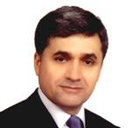Plasminogen activator inhibitor -1 gene 4G/5G polymorphism in patients with breast cancer.
Keywords
Abstract
OBJECTIVE
The plasminogen activator inhibitor-1 (PAI-1) plays an important role in the development of tumor invasion and metastasis. The 4G allele of 4G/5G insertion / deletion polymorphism located in the promoter region 675 bp upstream from the transcription start sequence of PAI-1 gene is responsible for the higher plasma PAI-1 level. The aim of the present study was to evaluate the association between PAI-1 gene 4G / 5G polymorphism and breast cancer.
METHODS
Two groups were investigated: the first group(group 1)was composed of 34 patients with breast cancer, the second group (group 2) consisted of 90 unrelated healthy women without history of malignancy. Genomic DNA isolation was performed from peripheral venous blood by standard phenol-chloroform extraction and polymerase chain reaction of the PAI-1 4G/5G polymorphism was performed.
RESULTS
The prevalence of 4G/4G or 4G/5G genotype in group 1 and 2 was 97.1% and 78.8%, respectively. The distribution of the PAI-1 4G/5G genotypes was significantly different between the two groups (p<0.05).
CONCLUSIONS
We suggest that this polymorphism may contribute to an inherited predisposition to the development of breast cancer, however further studies with larger series from diverse ethnic populations are needed to confirm our results.


